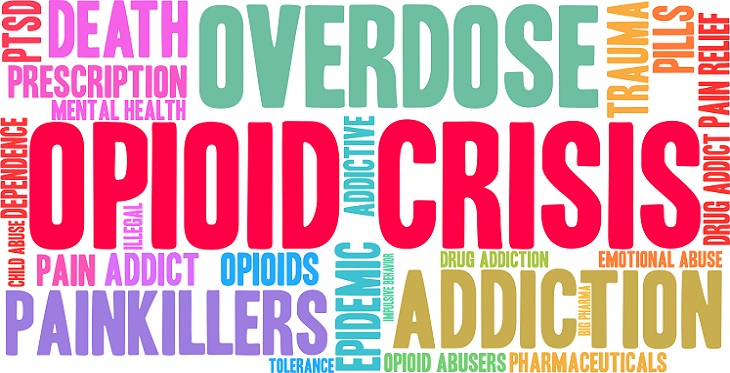Opioid addiction – both prescription and non-prescription – has reached crisis levels in the United States. The U.S. population represents just 5 percent of the global population, yet we consume 80 percent of the world’s opioids. This has led to tens of thousands of overdose deaths each year, and costs the economy $78.5 billion each year. The problem has worsened in recent years, and has been declared a national emergency.
In addition, doses of over-the-counter pain relievers are sold in the tens of billions each year. Tackling this problem is no easy feat. With millions of people misusing painkillers or turning to illegal forms of opioids like heroin to fulfill the needs of their addiction, creative, easily-accessible treatment options are needed to help people get back on their feet and regain control of their lives. Getting help in the current healthcare system can be difficult, as there are several hurdles patients and doctors need to clear in order to get effective treatment. As a result, many attempts at treating people with opioid addictions fail.
One possible solution, according to a number of medical experts, is leveraging the power of telemedicine. But how can remote care help addicts recover? And is it an effective solution to the opioid crisis?
Reaching Addicts in Remote Areas
Unfortunately, patients who have the most challenges receiving treatment are those who need it the most. The U.S.D.A. reported in October 2017 that more overdose deaths occur in rural areas than urban, and that about 74 percent of farmers have been affected by the opioid crisis in some way. Getting treatment in these rural areas of the country is challenging using traditional methods.
Patients with opioid use disorder need to stay under the close supervision of a physician to get the support and accountability they need to succeed, which includes psychiatric support and medication, such as methadone and suboxone, which can help patients become less dependent on opioids, but traditional regulations demand regular visits to a treatment center to receive them, which is often unrealistic for patients living in rural areas.
Telemedicine could revolutionize treatment for patients in hard-to-reach areas. As of now, there are some challenges to providing adequate care remotely, due to strict licensing requirements. However, the potential that telemedicine has for making treatment more accessible and allowing for better monitoring of patients and their medications is enormous. Some states, such as Indiana, are taking steps to allow remote prescribing of drugs that can help treat substance abuse.
Expanding Physicians’ Impact
Although medical professionals of all backgrounds may be able to help patients struggling with opioid abuse, not all doctors are trained or specialize in treating opioid abuse. Specialists have many patients, but they cannot impact those who are out of their geographical area in traditional treatment plans.
Using telemedicine, physicians’ impact could expand greatly. Patients who might not be able to travel to a clinic can still get a high level of care, and physicians can see more patients. Mobile technology allows patients and physicians to check in remotely, allowing physicians and patients to check in at times that work for them, increasing access.
Individual and Group Therapy
Medication alone won’t solve addicted patients’ problems. Getting help from a therapist is an important part of treatment. By making individual and group therapy sessions mobile, patients can undergo therapy in a comfortable, familiar setting, and keep their therapy appointments.
One Part of the Solution
While telemedicine is a promising tool in solving the opioid crisis, some changes will need to occur to harness its full potential to help patients across the country. More states need to understand the importance of using remote care to treat addiction, and reduce barriers. Telemedicine could become one of the most important methods for tackling America’s opioid epidemic.

